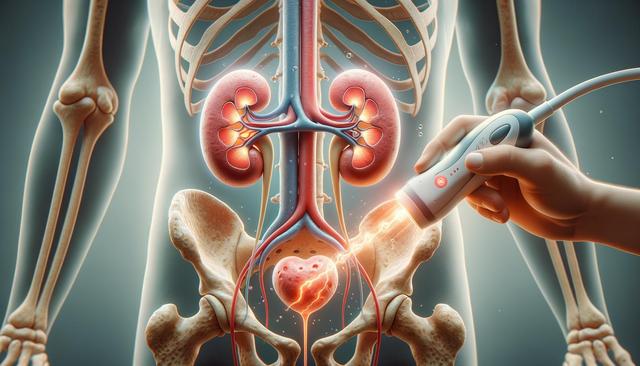How Kidney Stones May Develop and What Symptoms to Notice
Kidney stones form when certain substances in the urine—such as calcium, oxalate, and uric acid—become concentrated and crystallize. These crystals can grow into stones that vary in size, potentially causing significant discomfort. Understanding how kidney stones may develop and what symptoms to notice is key to early diagnosis and timely treatment. Common symptoms include severe pain in the back or side, blood in the urine, nausea, vomiting, and frequent or painful urination. In some cases, small stones may pass unnoticed, while larger stones can block urine flow, leading to more serious complications.
Several types of kidney stones exist, including calcium oxalate, uric acid, struvite, and cystine stones. Each type has unique causes and may require different treatment approaches. Medical imaging and urine tests are often used to identify the type of stone and its size. Recognizing these signs early allows for less invasive and more effective treatment strategies.
What Lifestyle Factors Influence Kidney Stone Formation
Multiple lifestyle choices can significantly impact the likelihood of developing kidney stones. Diet plays a major role, particularly when it includes high levels of sodium, protein, and oxalate-rich foods. Dehydration is another major contributor, as it leads to lower urine volume and higher concentration of stone-forming substances. Understanding what lifestyle factors influence kidney stone formation can help individuals make informed decisions to reduce their risk.
Key lifestyle factors include:
- Low fluid intake
- High consumption of animal protein
- Excessive salt and sugar intake
- Obesity and lack of physical activity
- Certain medications or supplements
Addressing these factors through dietary adjustments, regular exercise, and medical guidance can significantly reduce the chances of stone recurrence.
How Hydration Supports Kidney Wellness
Proper hydration is crucial in maintaining kidney health and preventing stone formation. Water dilutes the substances in urine that lead to stones, making it less likely for crystals to form. Understanding how hydration supports kidney wellness is essential for anyone at risk of kidney stones. Drinking enough fluids throughout the day helps to flush out toxins and prevent the buildup of minerals that can lead to stones.
General recommendations suggest drinking at least 2 to 3 liters of water daily, though this may vary based on individual needs and environmental factors. Monitoring urine color—aiming for a light yellow shade—can be a simple and effective way to ensure adequate hydration. In addition to water, certain beverages like citrus juices can help reduce stone risk by increasing citrate levels in the urine, which inhibits stone formation.
Non-invasive Kidney Health Strategies
Early-stage kidney stones and stone prevention can often be managed through non-invasive methods. These strategies focus on lifestyle modifications and medical therapies that support overall urinary health without the need for surgical intervention. Non-invasive kidney health strategies are particularly beneficial for individuals with recurring stones or those identified as high-risk due to family history or medical conditions.
Some effective non-invasive strategies include:
- Dietary adjustments to limit oxalates, sodium, and animal protein
- Use of medications to manage underlying conditions like gout or urinary tract infections
- Regular monitoring through urine and blood tests
- Incorporation of physical activity to support metabolic health
These approaches, when tailored to the individual’s needs, can significantly reduce the likelihood of stone development and improve overall kidney function.
Personalized Urology Care Options and Supportive Plans for Urinary Balance
For individuals dealing with chronic or complex kidney stone issues, personalized urology care options can offer targeted treatment plans based on specific medical profiles. Urologists can assess the cause and composition of stones, evaluate risk factors, and recommend customized interventions. These may include medication, dietary counseling, and routine follow-ups to monitor kidney function and urinary health.
In addition to clinical treatments, supportive plans for urinary balance play a crucial role in long-term kidney wellness. These plans often involve a combination of hydration strategies, dietary management, and lifestyle coaching. For example, patients may work with a dietitian to create a meal plan that reduces stone-forming nutrients while ensuring adequate nutrition. Patients are also educated on recognizing early symptoms and maintaining habits that promote urinary health.
With the right combination of clinical care and self-management strategies, many individuals can achieve significant relief and reduce recurrence risks.
Conclusion: Taking a Proactive Approach to Kidney Stone Management
Understanding how kidney stones may develop and what symptoms to notice is the first step in managing this painful condition. By addressing what lifestyle factors influence kidney stone formation and embracing how hydration supports kidney wellness, individuals can take meaningful steps toward prevention. Non-invasive kidney health strategies and personalized urology care options provide effective, patient-centered approaches to treatment. Finally, supportive plans for urinary balance ensure continued health and help minimize the chance of recurrence. Taking a proactive, informed approach can significantly improve outcomes and support long-term kidney health.




Leave a Reply